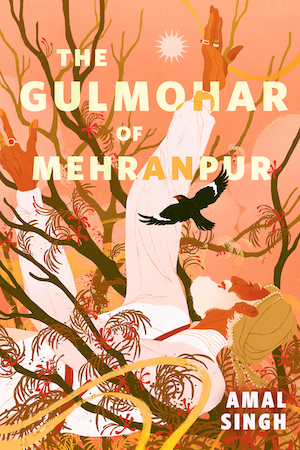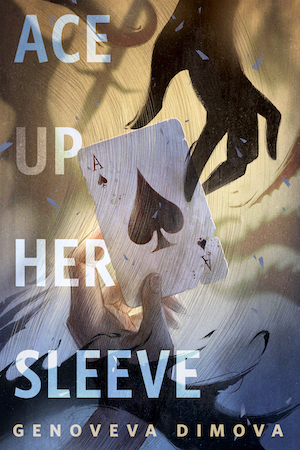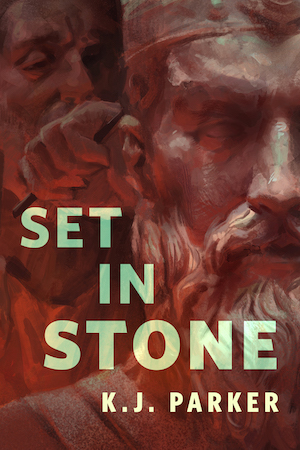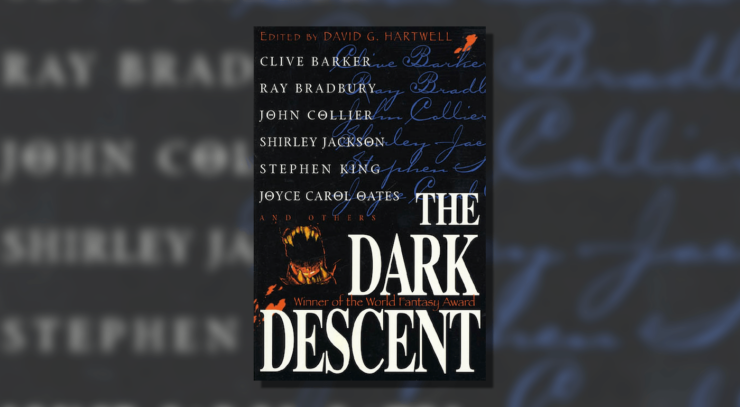Welcome back to Dissecting The Dark Descent, where we lovingly delve into the guts of David Hartwell’s seminal 1987 anthology story by story, and in the process, explore the underpinnings of a genre we all love. For an in-depth introduction, here’s the intro post.
If Richard Matheson’s impact continues to reverberate through modern horror, Joanna Russ was a seismic blow to the world of fantastic fiction. A queer feminist critic known for her explorations of gender and feminism through fiction like The Female Man, her landmark satirical work of criticism How to Suppress Women’s Writing, and her incendiary (but honest) reviews for The Magazine of Fantasy & Science Fiction, Russ not only challenged patriarchy and misogyny but the very status quo of the fantastic and the criticism therein. The same eye for deconstruction and reconstruction that Russ brought to her criticism were also applied to her fiction, where she sought to rebuild what she critiqued as something better, more modern, and less misogynist. “My Dear Emily,” her take on the vampire story, begins with elements of the gothic, but through deconstruction of tropes, a more complex psychological portrait of its title character, and some brilliant shifts in allegiances and morals, it becomes something better, stronger, and more modern than its initial premise might suggest.
Emily returns home to San Francisco from her time away at school, bringing her “bosom companion” Charlotte along with her. Emily chafes under the repressive reality her family represents—her betrothed William is constantly hovering while she rejects his advances, she’s forced to go to boring parties thrown by her father, and she is expected to be a young woman of discipline, bound by rules as opposed to being freely allowed to do as she pleases. This changes when she meets Martin Guevara, a sinister man who desires her and wishes to devour her. Martin is a vampire, but as much as Emily is repulsed and Martin is an abusive monster, a path to freedom emerges. If Emily can convince Martin to let her join the ranks of the undead, she might finally be free of the stifling demands of family and womanhood. All it will cost her is her soul and the lives of her pesky, interfering family and friends.
It’s clear from “My Dear Emily” that Joanna Russ has a deep understanding of the gothic. “My Dear Emily” comes off as a very dark satire of vampire stories as only someone who knows vampire fiction in and out could tell it, but it also works incredibly well as a modern version of a traditional gothic vampire story. From the outset, Emily is established as a well-to-do and intellectual young heroine, though condescending towards Charlotte, openly contentious towards her betrothed William, and terrified at the toxic repression and institutionalized misogyny of her life. “My Dear Emily” is set up to, on the surface, depict stock gothic tropes—Emily as a gothic heroine, romanced by sweet William, supported by good-hearted Charlotte and her appetite for gothic novels, and menaced by rapacious Martin the vampire.
This is, of course turned on its head almost immediately. It starts with Emily rejecting William at every turn despite the two supposedly being engaged. While Martin is every bit the rapacious sociopath who compels and binds Emily to his will, Emily starts to relish the idea of freedom that Martin represents—the dead come and go as they please, she’s set apart from societal obligations when people she doesn’t care about give her a wide berth, she gets to live forever and remain youthful, the powers are a nice plus, and she can easily ward off the patriarchal slings and arrows suffered as a woman in the 1800s. She even manages to do away with Charlotte, who by that point has become more of a hindrance to her plans, arranging for her death via Martin after tricking Charlotte out of her protective wolfsbane leaves. The closer Emily gets to undeath, the more willing she is to cast aside her life, falling in love not with Martin so much as the independence and agency conferred to her by Martin. After all, there’s no patriarchy amongst the undead, and Martin’s ability to go anywhere and do anything could be liberating for Emily.
This also sets up the complexity Russ adds into the narrative. What Emily wants is relatable, as anyone who’s chafed under the bonds of a repressive, patriarchal life or been forced back into a toxic and abusive environment can tell you. The goal in such situations becomes survival by any means necessary, before you lose your mind and yourself. It’s clear as the story continues that Emily’s purely interested in survival and a way out, regardless of who she steps on to get there. She’s fully in survival mode, especially given that a supernatural predator who can compel her to do whatever he wants has chosen to target her. It’s why it’s so important for Emily to use every trick, every opportunity to take care of herself. When she finally decides to accept Martin’s Faustian bargain, she sells Charlotte out to the vampire, because Charlotte has become more obstacle than friend. In her single-minded pursuit of immortality, she completely ignores her father and “sweet William,” because the more time she spends around them, the more they stand to interfere.
Russ’s tragic twist is that in sacrificing everything for a way out, in using everyone purely to survive and discarding them if they can’t help her, Emily finds her own undoing. Charlotte gains the immortality Emily wanted, the neglected William and Emily’s father murder Martin in the graveyard in order to “save her,” and Emily is sent bolting through the graveyard to Charlotte’s mausoleum in the hope that her long-suffering companion (who, and I cannot stress this enough, Emily cheerfully feeds to a vampire) will take her back in. Emily might be right about this, but the outlook isn’t particularly rosy as Emily is probably certain to form more toxic bonds around herself and Charlotte. In her mad dash to escape her toxic environment, Emily transforms from gothic heroine to gothic antihero, sacrificing her soul, her friend, and her humanity to accept a Faustian bargain from her demon lover. As with all antiheroes who give up their soul, it ends with her desperately seeking refuge from the horrors that are the consequences of her actions as they descend upon her, unrelenting.
“Modern gothic” doesn’t just mean “setting a gothic story in the modern day,” but applying a modern outlook to gothic stories, whether that’s a change in setting or a change in viewpoint and ideas. With “My Dear Emily,” Joanna Russ wasn’t simply content to deconstruct gothic horror, but to reconstruct it, to rebuild it as something more complex and morally gray—her own take on modern gothic. Emily’s reasons for her deeds are clear and, honestly, understandable. While she cunningly subverts her role as gothic heroine, she is reformed by her experiences into an equally cunning gothic antihero. As she gains more agency in the plot and her ambition grows, the supporting cast shift around her to help or hinder her in her plans, with Emily and her psychological transformation always at the center. In presenting a complex portrait of a woman crafty enough to be capable of anything, Russ didn’t just shred the tropes of the past, but reformed them into something newer and stronger.
And now to turn it over to you: Is Emily’s escape plan a desperate Faustian bargain or a calculated attempt to elude the patriarchy? Do you prefer Russ’s fiction, or her criticism?
Please join us in two weeks for another master of the modern gothic with “You Can Go Now” by Dennis Etchison










